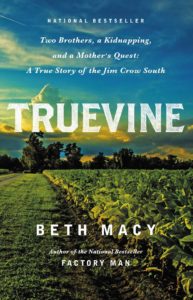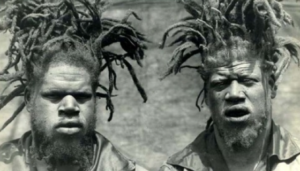Time to Drain the Democratic Swamp
 Last week CNN hosted a town hall with Sen. Bernie Sanders. This was not only another example of why I need to cut the cord, but also what is wrong with the Democratic party.
Last week CNN hosted a town hall with Sen. Bernie Sanders. This was not only another example of why I need to cut the cord, but also what is wrong with the Democratic party.
This town hall was presented as if Sanders was the defacto leader of the party. Apparently, a lot of Americans feel this way. According to a Public Policy Polling survey, about a quarter of survey participants said they would vote for Sanders if he ran again for president as a Democrat in 2020. But catch this; 31 percent of participants would like to see Vice President Joe Biden run again for that office and 16 percent wanted to vote for Sen. Elizabeth Warren.
While I have a lot of respect for Sanders, Biden, and Warren, two old white men who have already run for office along a slightly younger white woman are not the future of the party. If the Democrats claim that they are the party of diversity in a multicultural America, then they need to start looking like it.
It is time for them to start grooming younger, more diverse people with new ideas as the faces of the party. Every once in a while you see Corey Booker, Kamala Harris, and the Castro brothers, but they are never presented by the DNC as official voices for the party. Considering that the first black president is about to leave, it has become starkly evident that the DNC hasn’t done a good job of presenting who could be the next president of color or at least have a higher public profile.
Say what you will about the Republicans, at least they have visible faces of color on their side who are publicly seen as rising stars within the party like Nikki Haley, Marco Rubio, Ted Cruz, Tim Scott, Bobby Jindal (albeit a religious nut), and, heck, even Condi Rice (albeit a war criminal). At least the GOP had the most diverse group of candidates running for president during the last presidential cycle, unlike the Democrats that paraded out even more old white people.
Also, this lack of diversity continues to feed into this belief that the Democrats keep blacks on a “plantation,” by just taking our votes and not actually doing anything to improve the lives of black people and not putting enough of us in positions of power within the party. Well, it is a fact that Democrats take people of color for granted.
Some would argue that Barack Obama was elected president as a Democrat. However, if you recall from eight years ago, Hillary Clinton was the establishment DNC choice. Obama wasn’t supposed to win; he wasn’t even expected to survive the primaries. Obama didn’t win because of any help from DNC; he created his upstart operation and strategies with a staff of young idealists with fresh, new ideas. The DNC wanted to stay with the status quo and did everything to take him down, including calling him “house boy.” The DNC only came on board after it became apparent that Obama was going to easily beat John McCain.
And I am not just saying all this for diversity sake; there is seriously a significant problem within the Democratic party. They should have easily won the 2000 election. Al Gore’s campaign, lead by the ever corrupt Donna Brazile, should have won against dimwitted Dubya. So technically 1996 was the last time the Democrats won the White House with the “other” black president Bill Clinton who gave us the crime bill; which is something that has drastically held back black people for over 20 years.
If the Democrats want to survive in the future, it’s high time for them to drain the swamp.



